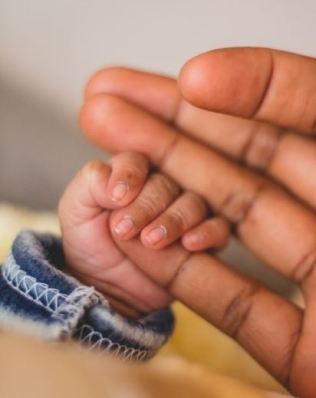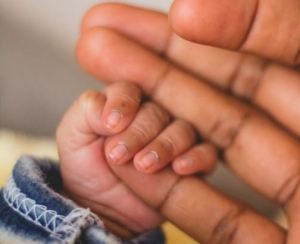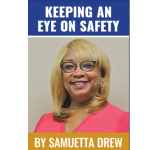 By Mylika Scatliffe
By Mylika Scatliffe
Special to the AFRO
Fewer news stories have been more horrifying than those about babies abandoned and left to die. Like Melissa Drexler of New Jersey who in 1997, after concealing her pregnancy from family, friends and her boyfriend, gave birth in the bathroom stall at her high school prom. She smothered the baby, wrapped him in trash bags and tossed him in the trash before returning to the dance. Or the woman in Orlando, Fla. who delivered three babies, one each in 2016, 2017 and 2019 and abandoned them all in various places around the same apartment complex.
These stories, and unfortunately countless others, led to the passage of “Baby Moses laws,” or infant safe haven laws. Beginning in Texas in 1999, the laws were enacted as an incentive for mothers, who did not feel they could care for their newborns, to safely surrender them to designated locations. At these locations, the babies would be sheltered, protected, and provided medical care until a home could be found for them. Today, no newborn has to be abandoned because their parent is alone, afraid or desperate. All states, the District of Columbia, and Puerto Rico have safe haven legislation in place. The main purpose of the law is to give parents an alternative to criminal abandonment. Safe haven laws apply to very young newborns, ranging in age from 72 hours to one year depending on the jurisdiction, with the average age being 30 days old. Most states allow either parent to relinquish their infant.
The safe haven law is to ensure infants are left in the custody of someone who can provide immediate attention to their safety and well-being. The majority of safe haven locations are hospitals, police or fire stations. A few states allow infants to be relinquished to churches, but the parent must determine that someone from the church staff is present before leaving. A handful of other states allow emergency medical personnel responding to 911 calls to accept an infant.
The overwhelming reason for babies being abandoned is fear. A parent in crisis may be afraid for myriad reasons. They may be afraid they can’t provide for the baby. They may be afraid of the other parent. They might be homeless or a teen mother who has concealed her pregnancy. Ultimately fear of the potential consequences leads to panic and a child being left to die in a dumpster or in the woods. One key component of the law is that whoever surrenders the child can remain anonymous and not suffer prosecution, if it is done in a safe manner and the child shows no sign of neglect or abuse. “The goal is to really protect the baby and help a struggling parent to make the baby’s safety top priority without having to worry about going to jail,” according to Nicole Harris-Crest, an attorney with the Smithey Law Group in Annapolis, MD.
Personnel at a safe haven location may ask questions about the baby’s identification or medical condition to ensure they receive best care, but the surrendering person cannot be coerced into not giving up the baby or even providing information. This is a crucial element of the law; fear of negative, severe consequences may cause a parent in crisis to panic and take action that will irrevocably harm the baby. In general, the safe haven law provides protection from criminal liability for parents who safely relinquish infants and guarantee anonymity. Immunity from prosecution and anonymity are forfeited if there’s evidence of abuse or neglect to the baby.
The safe haven law also protects individuals who accept custody /of relinquished infants from liability for anything that happens to the baby while in their care unless there is evidence of major and willful neglect.
Captain Leon Adams, a 25-year firefighter with the Arlington County Fire Department in Northern Virginia reviewed the protocol for how a safe haven baby is handled at fire houses in his county. Arlington County fire stations have “Safe haven lobbies.” A distressed parent who wishes to relinquish a newborn baby, up to 14 days old, or any member of the public in physical danger can enter the lobby. It’s open 24 hours a day, 7 days a week,365 days a year. Once they enter, they press the button marked “emergency,” which locks the exterior door, calls 911, and activates a camera. “There are no repercussions for a parent leaving a baby, and we certainly have been able to catch an abusive man who chased a woman into the lobby. We were able to call the police, get the plates from the camera images and he was apprehended,” said Adams. While the cameras can and do assist in apprehending violent suspects, a parent does not have to worry about the cameras being used to identify them for criminal charges and prosecution.
When a parent relinquishes a baby to one of 6 out of 9 safe haven fire stations in Arlington County, he or she and the infant are given matching bracelets for identification purposes in case they later change their mind. Each designated safe haven station also has special kits available in order to give the newborns an initial medical assessment before they are sent to the hospital.
Several states (Indiana, Florida, Arizona, Kentucky, Ohio, and Arkansas) have what is called a Safe Haven Baby Box (SHBB). These are installed inside the exterior wall of a designated fire station or hospital. It has an exterior door that automatically locks when a baby is placed in the box. An interior door allows a staff person to secure the surrendered newborn. An alarm is triggered once a baby is placed in the box, and someone is alerted immediately. Over 13 babies nationwide have been safely surrendered since the first box was installed in 2016. Parents can also call the SHBB national hotline if they are considering surrendering their newborn. Over 100 babies have been surrendered as a result of calls to the hotline.
The rules deciding parental rights once a newborn is relinquished vary from state to state. In some states, as soon as a newborn is surrendered, parental rights are considered terminated. Other states may have protocols in place for a parent to regain custody.
No one ever has to abandon a baby. Safe Haven laws ensure that distressed parents who are unable or unwilling to care for their baby can safely surrender custody. No questions asked.
For more information about safe haven laws in Maryland, visit the Department of Human Services website at dhs.maryland.gov. For information on safe haven laws nationwide, visit www.childwelfare.gov and search “infant safe haven laws.”
Help us Continue to tell OUR Story and join the AFRO family as a member – subscribers are now members! Join here!
The post Safe Haven Infant Laws: No questions asked appeared first on AFRO American Newspapers .










